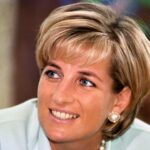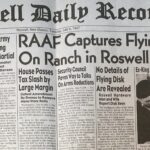The assassination of President John F. Kennedy on November 22, 1963, in Dallas, Texas, remains one of the most debated and scrutinized events in American history. Despite the official findings of the Warren Commission, which concluded that Lee Harvey Oswald acted alone, numerous conspiracy theories have emerged. This article explores the origins, claims, and counterarguments of these theories.
The Official Narrative
The Warren Commission:
- Established by President Lyndon B. Johnson, the Warren Commission investigated the assassination and concluded in 1964 that Lee Harvey Oswald acted alone in killing JFK.
- Oswald was shot and killed by nightclub owner Jack Ruby two days after the assassination, which fueled further speculation and conspiracy theories.
Prominent Conspiracy Theories
1. Multiple Shooters and the Grassy Knoll
Claim:
- One of the most popular theories is that there was more than one shooter, with some suggesting a second shooter was positioned on the grassy knoll in Dealey Plaza.
Evidence Presented:
- Eyewitness testimonies of shots coming from the grassy knoll.
- The “magic bullet” theory, which posits that a single bullet caused multiple wounds to both JFK and Texas Governor John Connally, is seen as implausible by some.
- The Zapruder film, which some interpret as showing evidence of shots from multiple directions.
Counterarguments:
- The Warren Commission and subsequent investigations, including the House Select Committee on Assassinations (HSCA), found no credible evidence of a second shooter.
- Forensic analysis of the bullet trajectories supports the single bullet theory.
- The Zapruder film has been analyzed extensively, with experts concluding that it does not provide definitive proof of multiple shooters.
2. CIA Involvement
Claim:
- Some theorists believe the CIA orchestrated the assassination due to JFK’s supposed lack of support for covert operations, including the Bay of Pigs invasion, and his desire to reduce Cold War tensions.
Evidence Presented:
- Alleged connections between Oswald and the CIA, including claims that Oswald was a CIA operative.
- Statements from former CIA officers and declassified documents suggesting possible CIA involvement.
Counterarguments:
- Official investigations found no evidence of CIA involvement in the assassination.
- Many claims about Oswald’s CIA connections are based on circumstantial evidence and speculation.
- The CIA has consistently denied any involvement.
3. Mafia Involvement
Claim:
- The theory suggests that the Mafia ordered the assassination in retaliation for the Kennedy administration’s crackdown on organized crime.
Evidence Presented:
- Alleged connections between Oswald, Ruby, and organized crime figures.
- Testimonies and statements from individuals claiming Mafia involvement.
Counterarguments:
- Investigations have found no concrete evidence linking the Mafia to the assassination.
- While Ruby had connections to the criminal underworld, his motives for killing Oswald remain unclear and are often attributed to a desire to protect Jacqueline Kennedy from a trial.
4. Soviet or Cuban Involvement
Claim:
- Theories propose that either the Soviet Union or Cuba orchestrated the assassination in response to Kennedy’s aggressive stance against communism.
Evidence Presented:
- Oswald’s visit to the Soviet and Cuban embassies in Mexico City shortly before the assassination.
- Cold War tensions and Kennedy’s actions, such as the Cuban Missile Crisis.
Counterarguments:
- The Warren Commission and subsequent investigations found no evidence that the Soviet Union or Cuba were involved.
- Both governments have denied any involvement in the assassination.
Psychological and Sociocultural Factors
Public Distrust:
- The chaotic and traumatic nature of the assassination, coupled with inconsistencies and secrecy in the official investigations, fueled public distrust.
Desire for a Larger Narrative:
- The idea that a lone gunman could change the course of history is unsettling, leading to a preference for more elaborate theories involving powerful organizations.
Media Influence:
- Books, films, and documentaries have popularized various conspiracy theories, keeping them alive in public consciousness.
Conclusion
The assassination of JFK remains a fertile ground for conspiracy theories. Despite extensive investigations and the official findings of the Warren Commission and HSCA, doubts persist. These theories reflect broader societal issues of distrust and the appeal of alternative explanations. Critical examination of the evidence and understanding the psychological factors behind these theories are essential for discerning fact from fiction.












